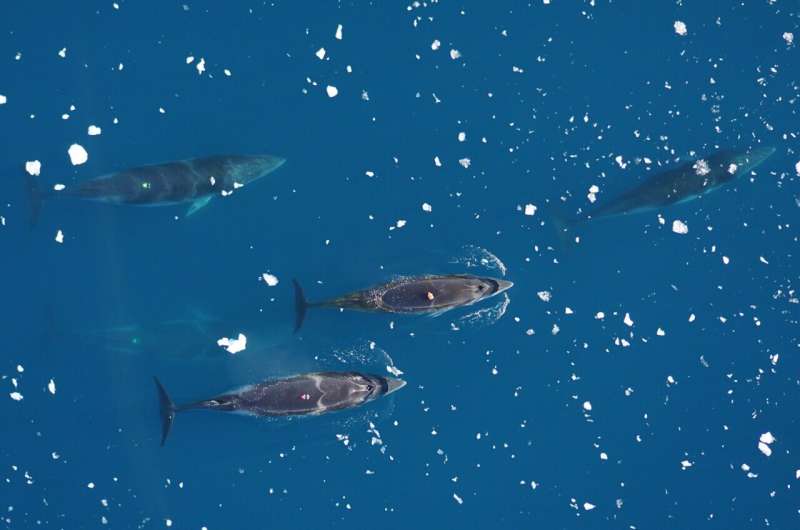Anarctic minke whales have shown to be “socially flexible” in their diving and foraging behaviors. Credit: Dave Cade
Researchers have conducted one of the first quantitative studies of social structure and social foraging in Antarctic minke whales, using pioneering animal-borne camera tags.
This study, published in Behavioral Ecology and Sociobiology, sheds light on the complex social and foraging behaviors of these elusive krill specialists within the fragile Antarctic sea-ice ecosystem.
The study was led by Dr. Jenny Allen as a Griffith University Research Associate in collaboration with the University of California Santa Cruz (UCSC). Data were collected in 2018 and 2019 around the Western Antarctic Peninsula as part of a research grant from the National Science Foundation’s Office of Polar Programs to Dr. Ari Friedlaender, a Professor in UCSC’s Ocean Sciences Department.
The study is unique in its use of motion-sensing, video- and audio-recording tags deployed on Antarctic minke whales for the first time to study their ecological role through analysis of their diving, foraging, and social behaviors.
Data analyses focused on the whales’ diving, foraging, and social behaviors, providing fresh insights into their ecological roles.
Findings from the study indicated that Antarctic minke whales exhibit a “fission–fusion” social structure, frequently switching companions.
2024-05-27 20:51:03
Article from phys.org
